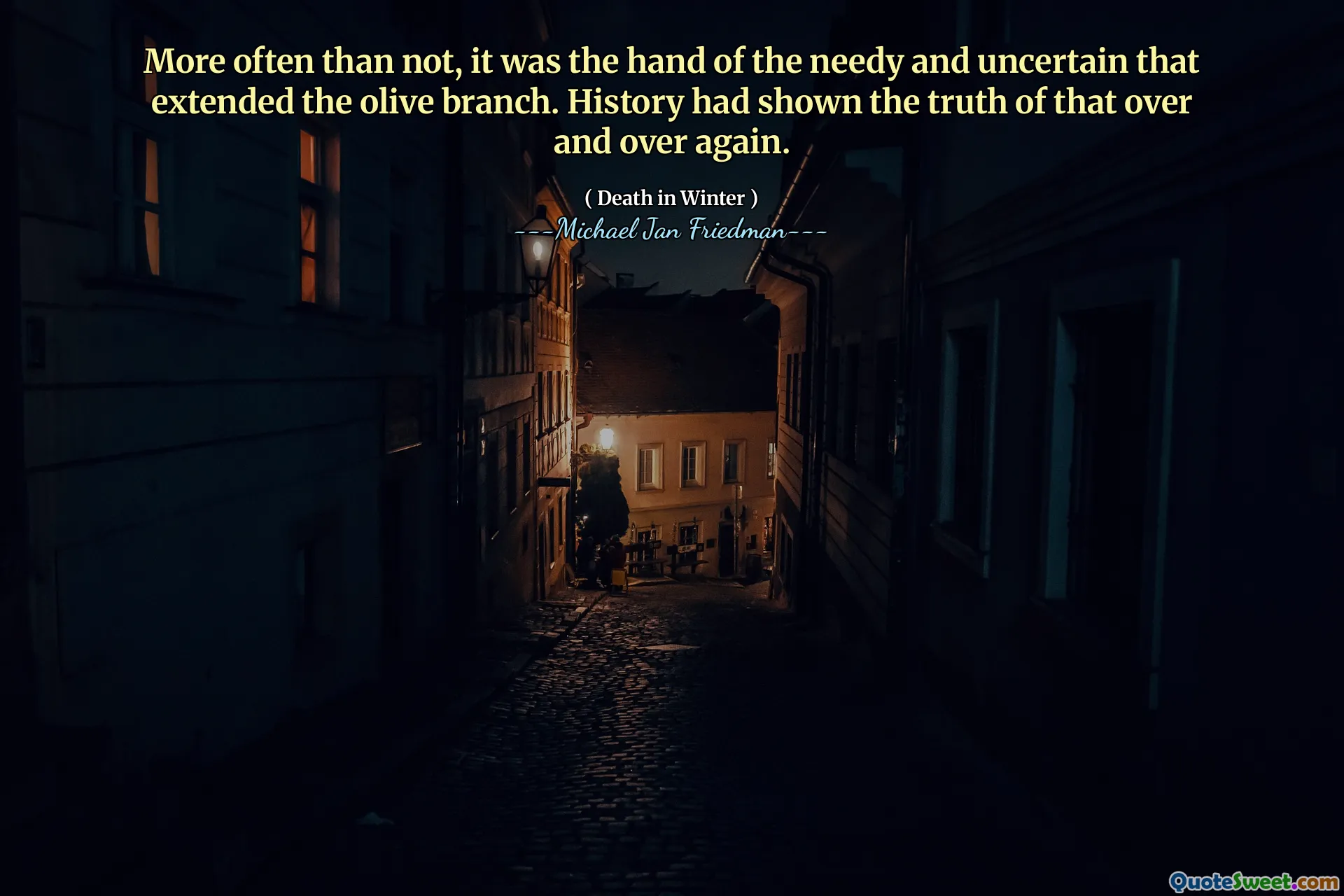
More often than not, it was the hand of the needy and uncertain that extended the olive branch. History had shown the truth of that over and over again.
Throughout history, acts of peace and reconciliation often originate from those who are most vulnerable or have the most to gain from peace. The gesture of extending an olive branch symbolizes a desire for harmony and an acknowledgment of mutual dependence. It is often the less powerful or those in doubt who initiate the effort towards resolution, underscoring the humility and courage required to seek peace. This cyclical nature of history demonstrates that even in times of conflict, the possibility for reconciliation lies with those willing to bridge divides, even when their position seems weaker. Such acts are not only brave but profoundly human—they reflect an innate hope for a better future despite circumstances that might suggest otherwise. Recognizing this pattern encourages us to appreciate moments of vulnerability as opportunities for peace rather than weaknesses. It reminds us that true strength can lie in humility and the willingness to seek common ground, often coming from the most unlikely sources. In a broader sense, this quote serves as a testament to the enduring power of compassion and understanding in shaping the course of history. It challenges us to consider how, in our own lives and relationships, reaching out to others, especially when we feel uncertain, can lead to meaningful change. The recurring theme across the ages is that valuable harmony and progress often stem from humility, empathy, and the courage to extend peace even when it is most difficult to do so.






